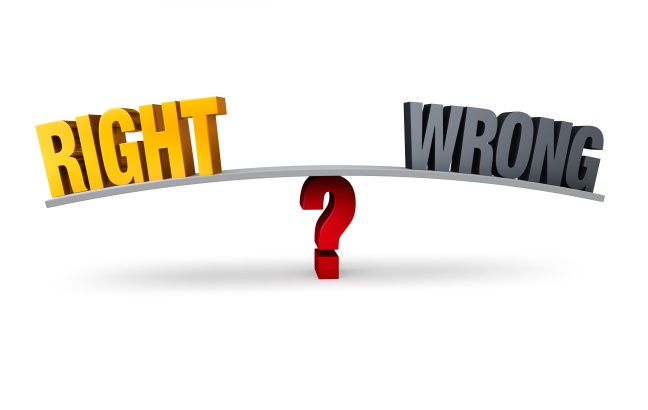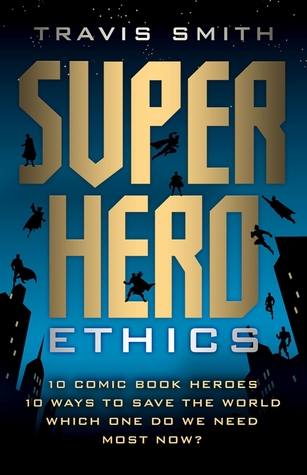Interview with Travis Smith,
Author of Superhero Ethics
About the Author:
Travis Smith is the author of Superhero Ethics (Templeton Press). He is an associate professor at Concordia University where he teaches political philosophy. He remembers seeing Superman: The Movie with his dad on the big screen at the age of five. He has been collecting comic books since he bought a copy ofUncanny X-Men #207 in 1986 with his allowance from the racks at Stan’s Variety. For over thirty years, Travis has made a weekly stop at his local comic shop on the day new comics are released to pick up the books on his pull list–from Comic Connection in Hamilton, Ontario, while he attended McMaster University, to the Million Year Picnic in Cambridge, Massachusetts, as he earned his doctorate at Harvard University, to Major Comics in Montreal, Quebec, the city where he now teaches Hobbes, Tocqueville, Plato and Aristotle by day, and fights crime by night.
For more information, please visit www.templetonpress.org/books/superhero- ethics

What is the overall theme of the book?
It’s ostensibly about superheroes but it’s really about us, in our early twenty-first century moment—the challenges of living in our world today; wondering what kind of people we should aspire to be; and what it means to be responsible, for ourselves and to others.
Describe your process of breaking down each character’s moral code of ethics.
I gathered information about each character’s origin, powers, relationships, major stories, successes and failures—rewatching many movies and shows, reading and rereading comic books. Then I tried to discern what was at their core. What kinds of people do they resemble if you don’t take the fanciful elements too literally? What part of the human condition—which temperaments and tendencies, which dilemmas, dreams, and dangers—do they represent? Then I had to pair each one up with another character I saw as essentially speaking to a similar part of the human condition, but in a distinctive enough way so as to avoid overlap and repetition.

What is the significance of hero’s vigilante justice?
Superhero stories reflect our society’s uneasy relationship with violence. We abhor it yet remain fascinated by it. These stories give that impulse a vicarious outlet. But your question reminds me of when I told my wife that I was watching the Rocky movies with our young son and she said, with faux outrage, “you’re watching movies about fighting with him?” I protested, “the fighting is a metaphor!” With a wink, she replied, “a metaphor for what? For fighting?!?” My approach in Superhero Ethics downplays the vigilantism and the violence, fully aware of how ironic it is to use characters best known for participating in violent spectacles as models for more civilized behavior. But I’m also a fan of professional wrestling, and in that genre of simulated combat, each bout should, as they say, “tell a story.”

In every chapter I get an impression there’s an inherent need of saving or altering the human condition. Explain.
Superheroes definitely speak to our hopes and fears regarding technological science. Most of my work as a professor of political theory focuses on early modern thought. In a way, you might say that the great early modern philosophers, such as Francis Bacon and Thomas Hobbes, were trying to be superheroes. They were trying to find ways to abolish suffering—or else make the promise of its abolition seem believable. They took the Biblical idea of saving the world and made it a project for human beings to pursue—with or without God’s help. What’s more comical than that? So, I’m not surprised that the models of heroism found in the modern medium of comic books are representatives of that endeavor.
“Suffering is one of life’s great teachers.” – Bryant H. McGill
What role does heroism play in our society?
I wouldn’t want to downplay the heroism of the bravest among us. In fact, I think our society tends to pooh-pooh heroics, as if only jerks and dolts try to be heroes and their spiritedness only puts the rest of us in danger. (Thomas Hobbes deserves a lot of credit for instilling this attitude in us.) But for the purposes of this book, I’m more interested in asking whether superheroes model behaviors that we non-heroic types can and should labor to exhibit in our own lives, for our individual and collective well-being.

What do you think of the contrast between Daredevil and the Punisher?
You’re right. That warrants a chapter-length treatment, doesn’t it?
Do you have more books planned about Superhero ethics? (Please, don’t make me beg.)
If I could write any book on philosophy and popular culture that I wanted to next, it would be about women’s professional wrestling. I think that’s the most exciting and inspiring thing out there today in sports and entertainment.

Your book touches on a very fundamental and complicated subject. What is justice? What is the right way to live? Who or what determines what is right or wrong? Where does our sense of ethics come from and why do we seek to emulate it in fictional characters? This book was epic and I loved every bit of it! Definitely would be interested if you wrote more. Perhaps the role of villains? Hint, hint.
I can imagine a volume on super-villains. Nobody wants global governance more than they do! And as they say, compelling villains believe they’re the real heroes. I have been thinking a lot lately, for instance, about what the character of Killmonger from Black Panther is intended to communicate about the nature of injustice. Anyway, thank you to The Writing Train for the opportunity to discuss my book. I’m glad you enjoyed it!

Thanks Travis!
Whether in comic books or on movie screens, superhero stories are where many people first encounter questions about how they should conduct their lives.
Although these outlandish figures—in their capes, masks, and tights, with their unbelievable origins and preternatural powers—are often dismissed as juvenile amusements, they really are profound metaphors for different approaches to shaping one’s character and facing the challenges of life.
But, given the choice, which superhero should we follow today? Who is most worthy of our admiration? Whose goals are most noble? Whose ethics should we strive to emulate?
To decide, Travis Smith takes ten top superheroes and pits them one against another, chapter by chapter. The hero who better exemplifies how we ought to live advances to the final round. By the end of the book, a single superhero emerges victorious and is crowned most exemplary for our times.
How, then, shall we live?
-
- How can we overcome our beastly nature and preserve our humanity? (The Hulk vs. Wolverine)
-
- How far can we rely on our willpower and imagination to improve the human condition? (Iron Man vs. Green Lantern)
-
- What limits must we observe when protecting our neighborhood from crime and corruption? (Batman vs. Spider-Man)
-
- Will the pursuit of an active life or a contemplative life bring us true fulfillment? (Captain America vs. Mr. Fantastic)
-
- Should we put our faith in proven tradition or in modern progress to achieve a harmonious society? (Thor vs. Superman)
Using superheroes to bring into focus these timeless themes of the human condition, Smith takes us on an adventure as fantastic as any you’ll find on a splash page or the silver screen—an intellectual adventure filled with surprising insights, unexpected twists and turns, and a daring climax you’ll be thinking about long after it’s over.
Amazon | Goodreads | Templeton Press


